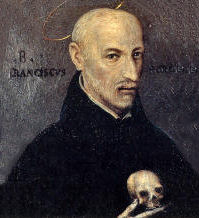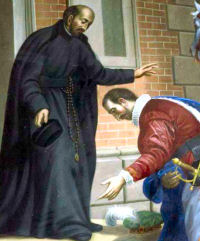St. Paul’s Letter to the Romans has long been recognized as a theological masterpiece, but that fact can make the letter seem awfully intimidating. So as we explore Romans over the next few weeks, let’s approach it as a real letter written by a real person and not as a philosophical, religious treatise.
Paul wrote Romans while he was in Corinth, probably in a.d. 57 or 58. He was preparing to take a collection of donations from the Gentile Christians in Macedonia and Achaia to the church in Jerusalem, which was struggling financially. From Jerusalem, he planned to sail to Rome, where he wanted to set up a base of operations to support a further missionary journey to Spain (Romans 15:26-33). Paul had not personally evangelized Rome, so he wrote this letter as an introduction, hoping to win the Roman Christians’ friendship and their support for his mission to Spain.
How did Paul introduce himself? By spelling out the gospel he proclaimed. He wrote about how God has made it possible for everyone to be reconciled to him through the gift of faith (Romans 3–5). He wrote about the life in the Spirit that Jesus has made available through his cross and resurrection (7–8). And he wrote about how everyone— Jew and Gentile alike—can come to know him and enter the kingdom of heaven (3, 9–11). In a sense, Romans gives us a glimpse into Paul’s own heart and mind. It reveals an apostle who is both a deep thinker and a passionate believer— and it points the way for us to follow his example.
As you read through Romans in the next few weeks, ask the Holy Spirit to help you embrace the love of God that is embedded in the letter’s main themes. This letter carries a message that has changed the lives of millions of people over the course of two thousand years. It’s a message that never loses its power to change us as we learn that nothing can separate us from the love of God in Christ Jesus our Lord (Romans 8:39)!
“Father, thank you for speaking to me through the Scriptures! Holy Spirit, open my heart, so that God’s love and mercy might penetrate to the depths of my soul.”
Psalm 98:1-4; Luke 11:29-32

 10th
10th  Francis Borgia, viscount of Catalonia and third general of the Jesuits, was born in 1510. On his father's side he was a great-grandchild of Pope Alexander VI; on his mother's side he was the great-grandchild of a son of Ferdinand the Catholic. His holy life atoned for the sins of his ancestors.
Francis Borgia, viscount of Catalonia and third general of the Jesuits, was born in 1510. On his father's side he was a great-grandchild of Pope Alexander VI; on his mother's side he was the great-grandchild of a son of Ferdinand the Catholic. His holy life atoned for the sins of his ancestors.